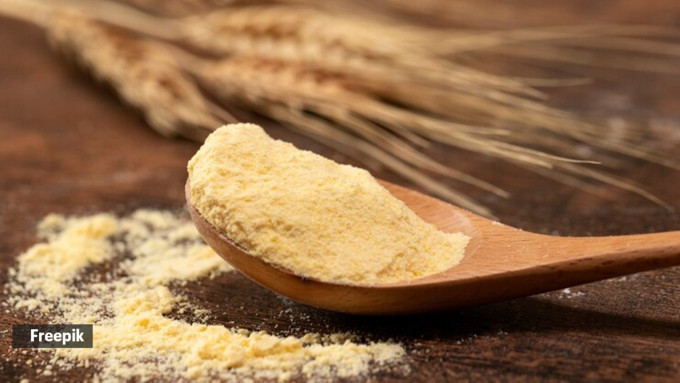Is your atta flour a victim of stone powder adulteration? Dietitian reveals long term health impact and what to replace it with
In light of recent news surrounding food adulteration, people are getting more and more worried about what they are consuming and how it is impacting their health. In case you’re a fan of roti sabzi, and your phulkas are tasting earthier than usual, you may want to pause a second. Latest headlines reveal stone powder contamination in atta flour, and we can only imagine the havoc it may be wrecking on our delicate gut lining.
To get more clarity on the potential damage caused by stone contaminated atta flour, we got in touch with a nutrition expert.

“Alabaster, a mineral and a soft rock used for carvings and a source of plaster powder was mixed (adulterant) to the flour. Safe to say, it is not fit for human consumption. However, if someone consumes this, it can cause side effects and potential health risks such as constipation, stomach discomfort, bloating and can also dental issues such as sensitivity as the nature of the stone can damage the enamel of the tooth and can cause cavities/caries,” said Deepalakshmi, registered dietitian, Sree Balaji Medical College & Hospital.
“In the long term, ingestion of these heavy minerals can cause damage to the kidneys. And if the flour was inhaled during cooking, it can cause chronic conditions along with respiratory issues as well,” she added.
How can you check for stone powder adulteration in your atta flour?
According to Deepalakshmi, stone powder adulteration can be checked by doing a sedimentation test, where you can add a tablespoon of this flour and put it in a glass of water, stir it will and wait for it to sediment, where the stone powder will be found deposited at the bottom.
She also suggested looking at the appearance and the texture. “If the flour is white or fine, it can be adulterated as atta is actually brown in colour and is little coarse in texture,” she said.
Deepalakshmi came up with another way – doing a vinegar test, where you can mix atta flour and water, and add a small amount of vinegar. “If it fizzes, the product is adulterated,” she added.
 She also suggested looking at the appearance and the texture. (Source: Freepik)
She also suggested looking at the appearance and the texture. (Source: Freepik)
What can you replace atta flour with?
Deepalakshmi shared that atta flour can be replaced by using other sources of carbohydrates like whole wheat, oats and millets. Sweet potato, quinoa and buckwheat can also be used to make a flour as they are healthy and reduce the risk of consuming the adulterated flour.
DISCLAIMER: This article is based on information from the public domain and/or the experts we spoke to. Always consult your health practitioner before starting any routine.
📣 For more lifestyle news, click here to join our WhatsApp Channel and also follow us on Instagram
Disclaimer: The copyright of this article belongs to the original author. Reposting this article is solely for the purpose of information dissemination and does not constitute any investment advice. If there is any infringement, please contact us immediately. We will make corrections or deletions as necessary. Thank you.

